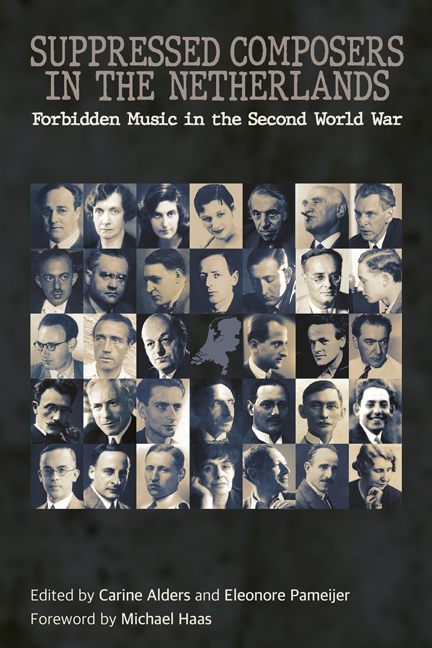24 - Andries de Rosa
Published online by Cambridge University Press: 09 May 2024
Summary
Relatively little is known about Andries de Rosa's childhood. The sixth of twelve children, he was born on 4 April 1869 in the Jewish quarter of Amsterdam, a modest environment. His father, Gerrit Andries, was a tailor, his mother, Vrouwtje, a milliner. After completing primary school, he was trained to become a diamond-cutter, a trade to which he was ill-suited: music, in which he was self-taught, had been close to his heart from an early age.
Around 1893, de Rosa went to Paris to pursue a career as a musician. He barely made a living working as a correspondent for the art magazine De Kunstwereld (‘The Art World’) and from the publication of his pieces for violin and piano. De Rosa wrote in a Romantic, nineteenth-century idiom and, under the pseudonym Armand du Roche, he continued composing orchestral works, songs, choral pieces and several works for violin and piano.
In Montmartre, at that time the artists’ quarter of Paris, he lived the life of a bohemian among painters, poets, sculptors and musicians. His meeting in 1894 with Saint-Georges de Bouhélier, a young poet and literary figure, was far-reaching, resulting in a lasting friendship and close collaboration. Thanks to this relationship, de Rosa became a regular contributor to Le Rève et l’Idée (‘The Dream and the Idea’), a monthly magazine that de Bouhélier and other kindred spirits had set up in 1894. As supporters of naturalism, they promoted more naturalness in art. The magazine was even published a few times in Dutch. For a period of time, de Rosa's best friend Israël Querido was co-editor.
In the late 1890s de Rosa came into contact with such well-known figures as the composer Gustave Charpentier, the author Émile Zola and the poet Paul Verlaine. Around that time the Dreyfus Affair resulted in serious social and political upheaval in France. De Rosa was also active in the movement initiated by the prolific French writer Anatole France (1844–1924) to interest the working class in art and culture through adult educational institutions.
In 1897, de Rosa married Delphine Dreese, shortly after the birth of their second child. The couple would eventually have three daughters and two sons.
- Type
- Chapter
- Information
- Suppressed Composers in the NetherlandsForbidden Music in the Second World War, pp. 225 - 230Publisher: Boydell & BrewerPrint publication year: 2024



